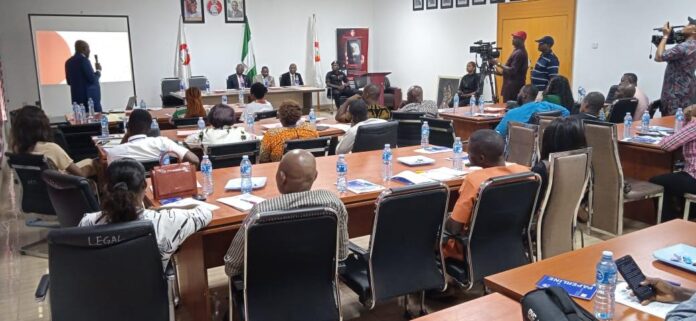The Executive Chairman of the Economic and Financial Crimes Commission (EFCC), Mr. Ola Olukoyede, has called for deeper collaboration between the Commission, the media, and civil society organizations (CSOs) in the South-East to strengthen the fight against economic and financial crimes across Nigeria.
Olukoyede made the call on Thursday, November 6, 2025, during a one-day capacity-building workshop organized by the Commission for media practitioners and CSOs in the region.
Represented by the Zonal Director of the Enugu Zonal Command, Commander of the EFCC, CE Daniel Isei, Olukoyede emphasized that corruption is surmountable but requires united action among key stakeholders. He noted that the EFCC cannot wage the anti-graft war in isolation, urging journalists and CSOs to remain vigilant and to provide credible intelligence that can help the Commission act swiftly and effectively.
“Intelligence sharing remains one of the most critical areas of our partnership,” Olukoyede said. “Timely and accurate information can make the difference between success and failure in the fight against corruption. We encourage the media and CSOs to continue to share actionable intelligence with the Commission.”
He assured that whistleblowers and information sources would be protected, adding that the EFCC has reinforced its mechanisms for confidentiality and safety. Describing the media and CSOs as “indispensable pillars” in nation-building, he called for “a coalition of conscience — an alliance of all stakeholders committed to good governance and national development.”
According to him, “The media is a veritable watchdog of our democracy. Through investigative reporting, you expose corruption, demand transparency, and inform citizens. CSOs, on the other hand, amplify the voice of the people, shape public opinion, and hold institutions accountable.”
The workshop featured several technical sessions, including presentations by Deputy Commander of the EFCC and Commission’s Spokesperson, DCE Dele Oyewale, who spoke on “The Role of CSOs and Media in Driving a Preventive Framework”; Head of Legal and Prosecution, ACE I Farouk Abdullah, who discussed “Prosecuting Financial Crimes: Issues, Challenges and the Way Forward”; and Chief Superintendent of the EFCC, CSE Stephen Idoko, who addressed “Understanding Cryptocurrency Fraud and Other Emerging Financial Crimes.”
Participants described the workshop as timely, providing a platform for knowledge sharing, capacity building, and renewed partnership in curbing corruption and strengthening transparency in the country.


